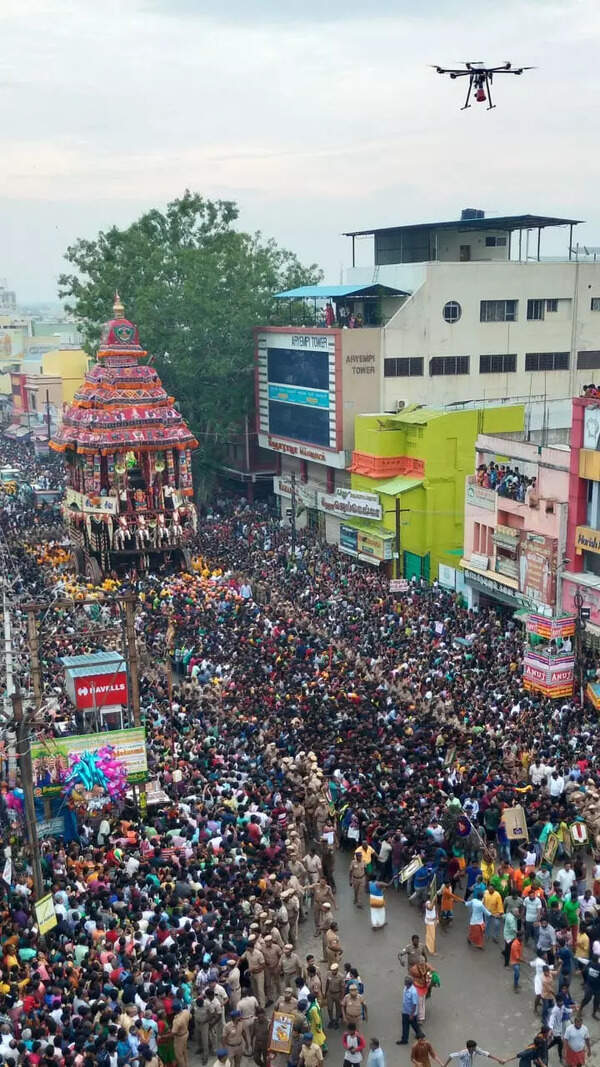- News
- City News
- bhubaneswar News
- Real challenge: Identifying traffickers of pangolin parts
Trending Topics
Real challenge: Identifying traffickers of pangolin parts

Bhubaneswar: As poaching of pangolins continues unabated, police and forest department officials are struggling to identify wildlife traffickers involved in the smuggling of body parts of the endangered mammal to other states and abroad.
Investigation into past cases indicated that the accused were primarily middlemen (villagers or poachers). Their interrogation elicited little clues about their links with gangs operating from other states and countries. “We had attempted to unearth the suspected international link of the poachers, including one Shamsuddin Khan who was arrested from Nayagarh district in 2018. They were from Odisha, Assam and Mizoram. We strongly suspected their links with four dealers in Myanmar,” said J N Pankaj, inspector general of police of the special task force (STF) of the state crime branch.
A Letter Rogatory (LR) was sent to the Myanmar government, seeking information about four foreigners for their alleged links with the poachers. But we did not find any link between them,” Pankaj added.
Forest officials, too, have not been able to bust the chain and network. “We arrested several villagers, but they could not give us any lead about the traders and smugglers operating from outside the state and country,” said Sanjeet Kumar, regional chief conservator of forest (RCCF), Bhubaneswar. Sources said pangolins are found in the forests of Mayurbhanj, Keonjhar, Kalahandi, Koraput, Rayagada, Boudh and Nayagarh. While pangolin meat is rarely consumed in Odisha, the mammal’s body parts, including scales are normally smuggled to middlemen in Kolkata, Siliguri (both in West Bengal), Moreh (located on the India-Myanmar border) in Manipur, Shillong in Meghalaya and Aizawl in Mizoram. From there, the pangolins are smuggled to Myanmar, Nepal and China.
Pangolin scales are used in traditional medicine to cure various ailments, including swelling, muscle stiffness, armpit boils, back pain and piles, though this has not been scientifically proven. “Some tribals use the scales as talisman for their protection from evil spirits. Pangolin meat, bile, scales and claws are reportedly used by tribal communities in some state in northeast India,” another police officer said.
Sources said pangolins are hunted when sighted or are dug out of their burrows. While a pangolin weighs between 10 to 13 kg, its skin with scales would weigh around 4 kg. About 450-520 scales are found on a pangolin’s back. Villagers normally sell one kg of scales for about Rs 1,000 to traders, who later sell it to bigger dealers for Rs 13,000/kg.
Investigation into past cases indicated that the accused were primarily middlemen (villagers or poachers). Their interrogation elicited little clues about their links with gangs operating from other states and countries. “We had attempted to unearth the suspected international link of the poachers, including one Shamsuddin Khan who was arrested from Nayagarh district in 2018. They were from Odisha, Assam and Mizoram. We strongly suspected their links with four dealers in Myanmar,” said J N Pankaj, inspector general of police of the special task force (STF) of the state crime branch.
A Letter Rogatory (LR) was sent to the Myanmar government, seeking information about four foreigners for their alleged links with the poachers. But we did not find any link between them,” Pankaj added.
Forest officials, too, have not been able to bust the chain and network. “We arrested several villagers, but they could not give us any lead about the traders and smugglers operating from outside the state and country,” said Sanjeet Kumar, regional chief conservator of forest (RCCF), Bhubaneswar. Sources said pangolins are found in the forests of Mayurbhanj, Keonjhar, Kalahandi, Koraput, Rayagada, Boudh and Nayagarh. While pangolin meat is rarely consumed in Odisha, the mammal’s body parts, including scales are normally smuggled to middlemen in Kolkata, Siliguri (both in West Bengal), Moreh (located on the India-Myanmar border) in Manipur, Shillong in Meghalaya and Aizawl in Mizoram. From there, the pangolins are smuggled to Myanmar, Nepal and China.
Pangolin scales are used in traditional medicine to cure various ailments, including swelling, muscle stiffness, armpit boils, back pain and piles, though this has not been scientifically proven. “Some tribals use the scales as talisman for their protection from evil spirits. Pangolin meat, bile, scales and claws are reportedly used by tribal communities in some state in northeast India,” another police officer said.
Sources said pangolins are hunted when sighted or are dug out of their burrows. While a pangolin weighs between 10 to 13 kg, its skin with scales would weigh around 4 kg. About 450-520 scales are found on a pangolin’s back. Villagers normally sell one kg of scales for about Rs 1,000 to traders, who later sell it to bigger dealers for Rs 13,000/kg.

About the Author
Debabrata MohapatraDebabrata Mohapatra is an Assistant Editor at The Times of India, Bhubaneswar. He had been writing for TOI from Puri since 2006 before joining the Bhubaneswar bureau in August 2010. He covers crime, law & order and Congress.
Start a Conversation
FOLLOW US ON SOCIAL MEDIA
FacebookTwitterInstagramKOO APPYOUTUBE










